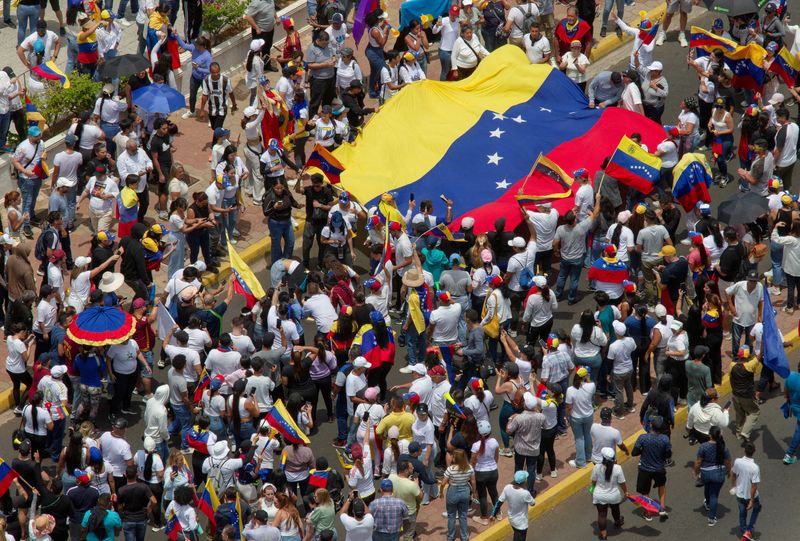
CARACAS (Reuters) – Venezuela’s oil production and exports were working normally on Thursday following last weekend’s disputed presidential election that has triggered protests and international reactions, but shipping delays accumulated since early this year persist, sources said.
Due to the electoral process, which typically requires the mobilization of the military, state-oil company PDVSA last week instructed joint ventures and its own operational areas to work with reduced staff and an increased level of security.
The order has been relaxed in recent days, with most PDVSA executives and staff working normal shifts. Crude production levels, which in June averaged 922,000 barrels per day according to official figures, have not declined, the sources said.
Exports of oil and fuel, however, continue accumulating delays related to slow shipping from the country’s main terminal, Jose, and a need to resort to ship-to-ship loadings for some products, which typically takes longer.
Some fuel imports also show delays, according to shipping data and the sources.
The U.S. government last year granted a broad license to Venezuela’s oil industry allowing PDVSA to freely export to its chosen markets, which triggered increased demand for Venezuela’s oil and pushed up fuel imports through swaps.
Since the OPEC country’s production did not increased accordingly, PDVSA in early 2024 began accumulating delays to deliver cargoes negotiated with existing and new customers.
The delays, which reach 60 days in some cases, have particularly affected importers of Venezuelan oil in Asia.
Among companies that receive Venezuela’s crude under U.S. specific licenses, including U.S. Chevron (NYSE:CVX) and Spain’s Repsol (OTC:REPYY), delays have not been as long, according to PDVSA’s exports records.

PDVSA did not immediately reply to a request for comment.
U.S officials this week said that individual licenses granted to energy companies operating in Venezuela will not be changed or withdrawn for the moment, despite Washington planning actions in response to the electoral dispute, including the possibility of fresh sanctions on the country.
This post is originally published on INVESTING.




